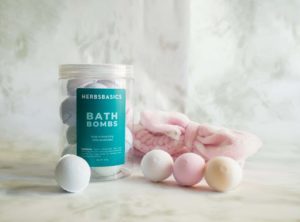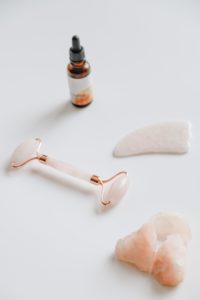The Battle of the Body Care Empires
Published on February 23, 2022, at 4:34 p.m.
by Jennafer Bowman.
Self-care is something most of us try to take part in. Whether it’s taking a bubble bath or deleting social media for a few days, the act of taking care of oneself is one of the most important parts of our lives. Brands are making a profit from it.
Body care brands Bath and Body Works and Lush Cosmetics are two of the most popular brands in the United States. In 2018, Bath and Body Works made over $4.6 billion in its fiscal year, while its U.K.-based competitor Lush Cosmetics only made $712 million in its fiscal year. The two companies attract different reactions online and have almost completely different target audiences.

Bath and Body Works’ target audience is women in their mid-30s to early 40s, with each customer averaging $21 per sale. Its over 1,700 brick-and-mortar stores are usually placed next to other chain stores that are targeted toward women, such as Victoria’s Secret, Sephora and Ulta.
The company sells over 400 different scents and proudly promises it makes “the world a brighter, happier place through the power of fragrance.” While catering to mostly women, the brand does sell a handful of men’s products as well. The company’s products are mostly body care items, such as lotion, hand cream, soap and hand sanitizer.
Lush Cosmetics is a bit different compared to its fully fragranced competitor. Its target audience is mid-20s to early 30s, professional women who have a passion for eco-friendly products. The company only has 200 physical stores in the U.S. and has a focus on selling handmade, ethically sourced products.

The company sold over 41 million different products in 2021 and prides itself on being 100% cruelty-free and vegan. The company does not sell to any specific gender even though its target audience is women. The company’s products focus more on bath and skincare items, such as bath bombs, face masks and moisturizers.
While both companies target women, the main users of social media, one of the brands chose to quit social media to benefit customers. In 2021, Lush Cosmetics indefinitely stopped its usage of social media as a brand due to social media’s impact on mental health. It is now focusing on creating YouTube and email content. The brand claimed customers were looking for companies that prioritize them and don’t want to make an “easy buck.”

Bath and Body Works continues to use social media and posts two to three times per day. With over six million followers on Instagram, a platform with two-thirds of its users being under 34 years old, it doesn’t appear that the brand is going to stop posting like its competitor has.
As Gen Z grows older, company brands need to anticipate the next generation’s wants and needs. As a Rolling Stone article noted, they expect brands to stick to their values and currently have an estimated $143 billion spending power.
Lush’s social media strike challenges brands to take a step back to ask if their target audiences are paying attention to the brands’ actions over their products. And trust me, they are.




